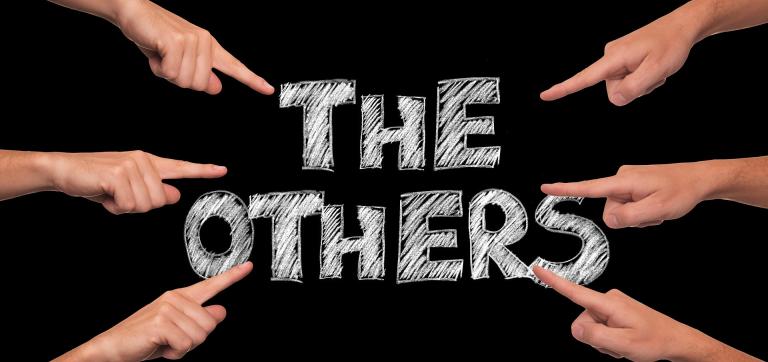A young Navy wife comes to therapy:
Wife: All my husband does is leave for deployments. I am tired of this and I don’t like it!
Me: Did you know this was part of the job when you married him?
Wife: Yes but I don’t like it. He doesn’t meet my needs. He’s never around.
Me: What is it you expect him to do, quit the Navy?
Wife: No, I guess not, but I still don’t like it.
Me: So you know he has to be deployed. Do you think there is any way he can still meet your needs? What could you do to make this better and less difficult on both of you? I bet he doesn’t like it either.
Wife: Me? Why are you asking me. He’s the one whose going away and leaving me alone?
Clearly this young woman is not willing to look at how to improve the situation. She prefers to blame someone else for her decision to marry a Navy man. I see this all the time. People are unhappy with their choices, point the finger and refuse to problem-solve.
Blame is common but toxic in all relationships. While it seems like blame is more and more prevalent, it’s not new. It has been around since the beginning of time. It started in a garden when Adam pointed a finger at Eve. Eve pointed a finger at the serpent and Adam blamed God for giving him the woman. This age-old problem always ends with the same result-distance from the person you blame.
When blame is the game, you don’t take responsibility. Blame says, “I can’t change or be OK until you change.” It’s not my problem, it’s yours. But an accusing finger doesn’t push your partner towards you. It ends in criticism and defensiveness. And lashing out doesn’t motivate someone to change.
So before you decide to engage in blame, pause and ask yourself a few questions. Do I really want to pretend I have nothing to do my unhappiness? is it really someone else’s fault? Did the person intend to hurt me? What is the actual problem? And what will pointing the finger do to our relationship? Will it get me what I want?
Next, consider the negative impact of blame. Do you want to be emotionally abusive? How would you feel if he or she was blaming you? What if the person made an honest mistake or if the behavior was unintentional? Your actions will be viewed as graceless.
Blame can become so automatic, you might not even know you do it. In that case, you have a real problem. Trust, the foundation of any healthy relationship, is damaged. You can’t trust someone who won’t own their part of a problem.
The anecdote to blame is to take responsibility. Most problems are not one sided. It is likely that you are doing something to contribute or add to the problem. Own it. Identify your part and change what needs to be changed.
Then, look for a solution. In the process, pay attention to your words. They should not sound accusatory. Be humble. Extend grace and be less judgmental. Agree to be on the same team and work towards a mutual goal. Attack problems not people.
In the end, blame damages relationships. It stops a person from being vulnerable. The normal give and take of a healthy relationship is missing due to the lack of trust.
Stop this one behavior and your relationship will improve. Take responsibility and work together to solve problems, not destroy your relationship.



